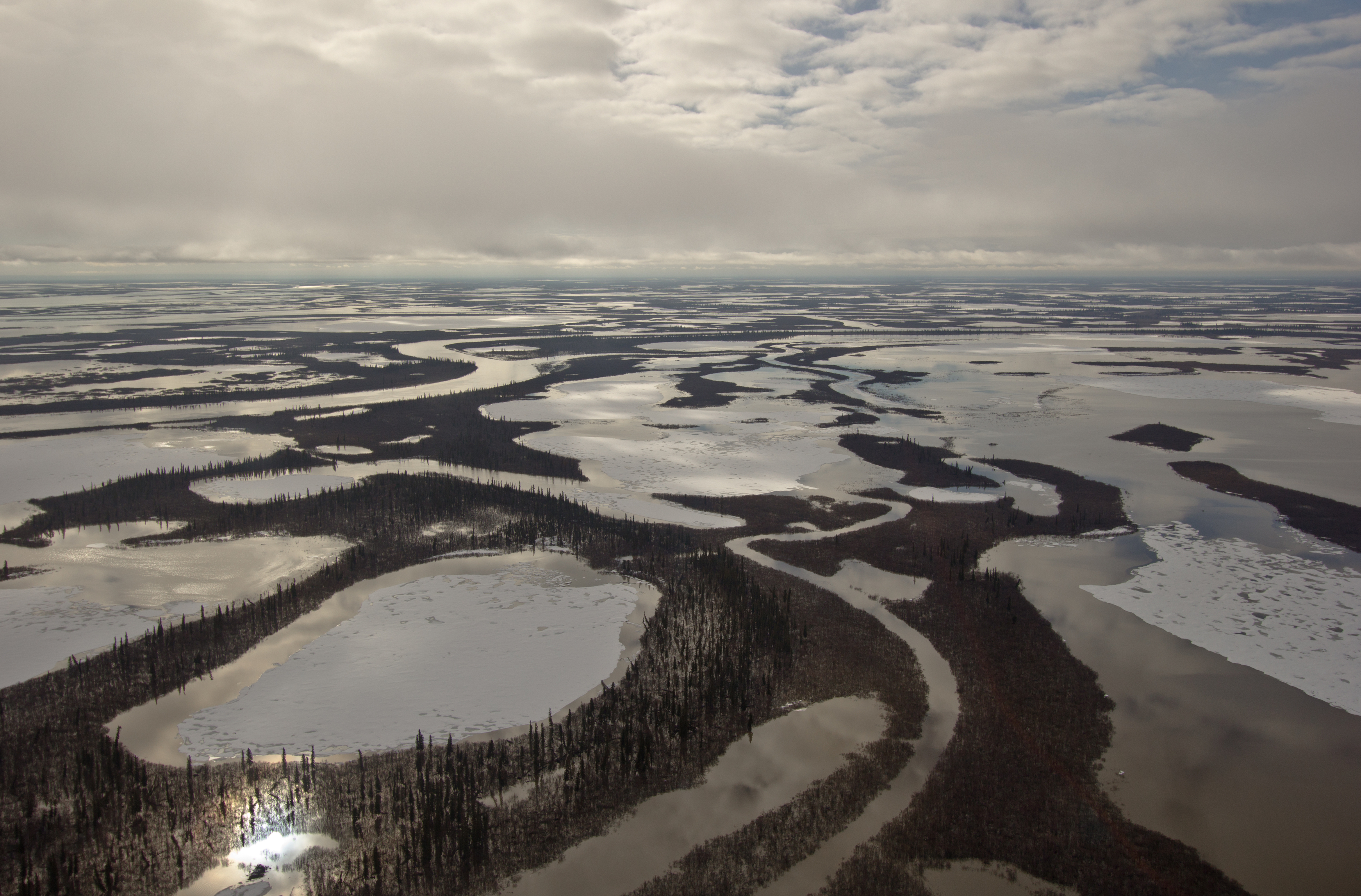If you talk to anyone who thinks seriously about water, the conversation will at some point turn to the need for evidence-based decision making. If you follow this line of inquiry to the most practical of questions—where is this evidence and how is it being used?—the answers get complicated. From government research to community-based monitoring, data is being collected by the terabyte. So where does it all go?
Mackenzie DataStream is a new tool that makes accessing such evidence as straightforward as possible. This online platform allows the public and decision makers at all levels to view and download a growing database of information about water quality in Canada’s Mackenzie Basin.
Mackenzie DataStream was born of the vision underpinning the Northwest Territories-wide, community-based monitoring program. Built through a partnership between The Gordon Foundation and the Government of the Northwest Territories (GNWT), Mackenzie DataStream was developed to share community water data collected in the territory. It is well positioned to accommodate data from other communities, researchers, and agencies throughout the six jurisdictions in the Mackenzie Basin.
“Mackenzie DataStream is a valuable source of information for N.W.T. water management and is included in the 2016-2020 Action Plan for the N.W.T. Water Stewardship Strategy,” said Erin Kelly, assistant deputy minister of the Department of Environment and Natural Resources of the Government of the Northwest Territories (GNWT). “We believe that Mackenzie DataStream will grow and inform the co-operative management of the Mackenzie Basin as a whole.”
When the pilot version launched in November 2015 in Dettah, Northwest Territories, it contained water-quality data collected by 22 communities from across the territory. These communities monitor the full gamut of water quality parameters, including dissolved metals, turbidity, temperature, chlorophyll-a, and hydrocarbons (oil and gas chemicals).
Fundamental to the Mackenzie DataStream strategy is a focus on datasets that matter to communities. Members of the N.W.T. Water Strategy Aboriginal Steering Committee, for example, are encouraged by its potential and state that “it is our hope that Mackenzie DataStream will provide the information necessary to monitor effective implementation of the objectives of the N.W.T. Water Strategy and track commitments made under the bilateral water management agreements by provinces and territories in the basin.”
Open access philosophy
In line with movements to “democratize” access to information, a philosophy of openness and accessibility has guided the development of every aspect of the project. The interface is simple to navigate and includes graphing tools that allow users to visualize the information that most interests them. Its datasets are complete and available for download in a format that allows users to perform their own analyses. Finally, even its source code, built by Alberta-based Tesera Systems Inc., is open source and available for re-use and community-driven improvements.
“One of Mackenzie DataStream’s strengths is that the datasets will be curated to ensure it does not become a data ‘dump site’ with an inconsistent structure or lack of documentation on data quality,” said Peter Pulsifer, a research scientist at the U.S. National Snow and Ice Centre and Exchange for Local Observations and Knowledge of the Arctic. “This is achieved through careful partnerships and real, human connections among data contributors.” As more partners come on board with datasets, DataStream will extend its reach across the critically important Mackenzie Basin.
Mackenzie DataStream’s open-access approach is part of a widespread shift, as evidenced by policies adopted by organizations like the Bill and Melinda Gates Foundation, the National Science Foundation, and most recently, Canada’s tri-agency of federal research funders (the Canadian Institutes of Health Research, the Natural Sciences and Engineering Research Council, and the Social Sciences and Humanities Research Council).
Former GNWT environment minister J. Michael Miltenberger explained that this open-access, community-monitoring-based approach is challenging traditional notions that scientific examination being limited to experts. “In many ways this open access model combined with a community-monitoring based approach is challenging traditional notions of science, namely, that the scientific examination of the world should be limited to experts. The public can and should have a role in stewarding Canada’s watersheds. Technologies like Mackenzie DataStream provide fundamental supports for making this shift.”
Carolyn DuBois is the water program manager at The Gordon Foundation.















